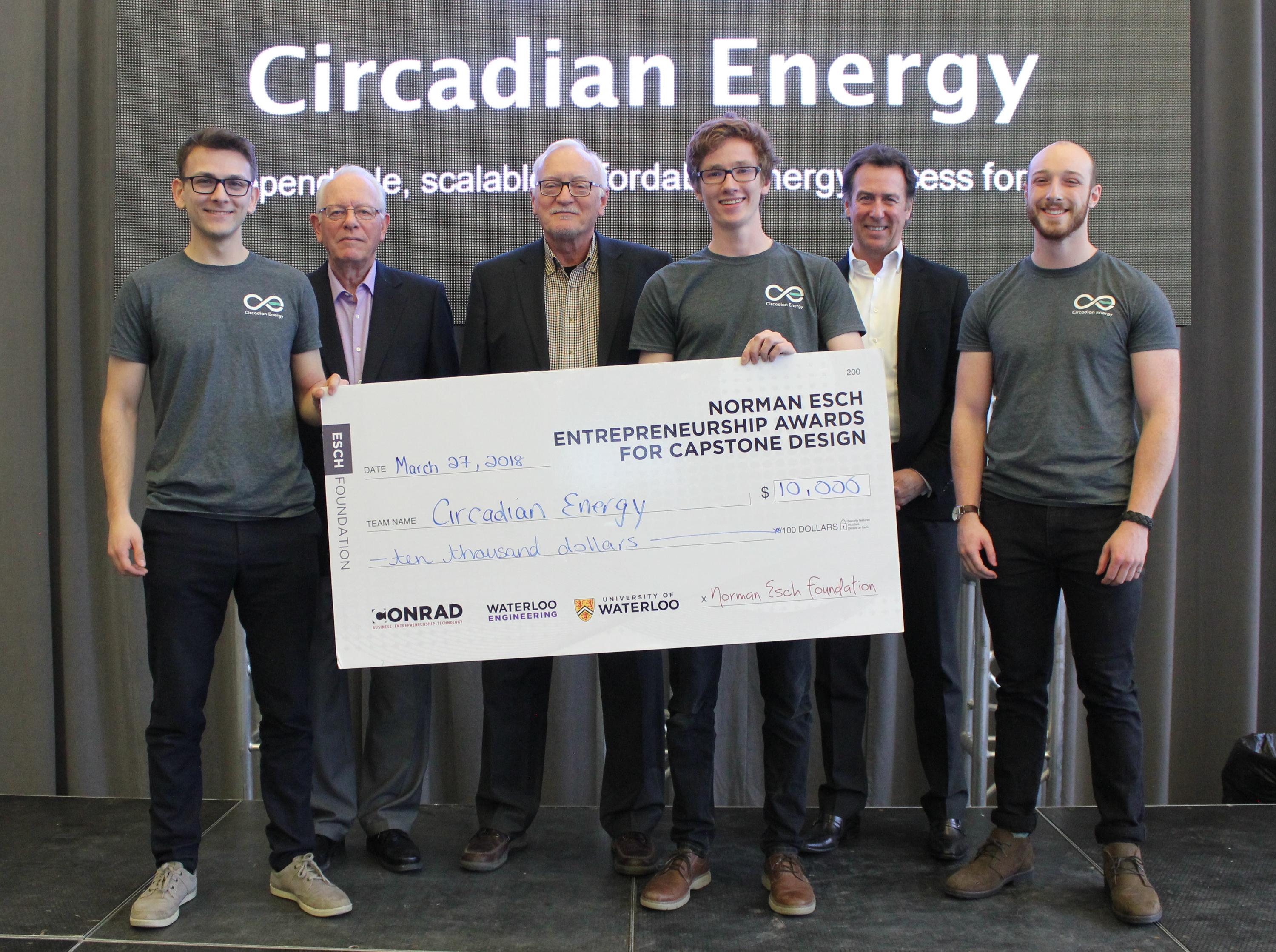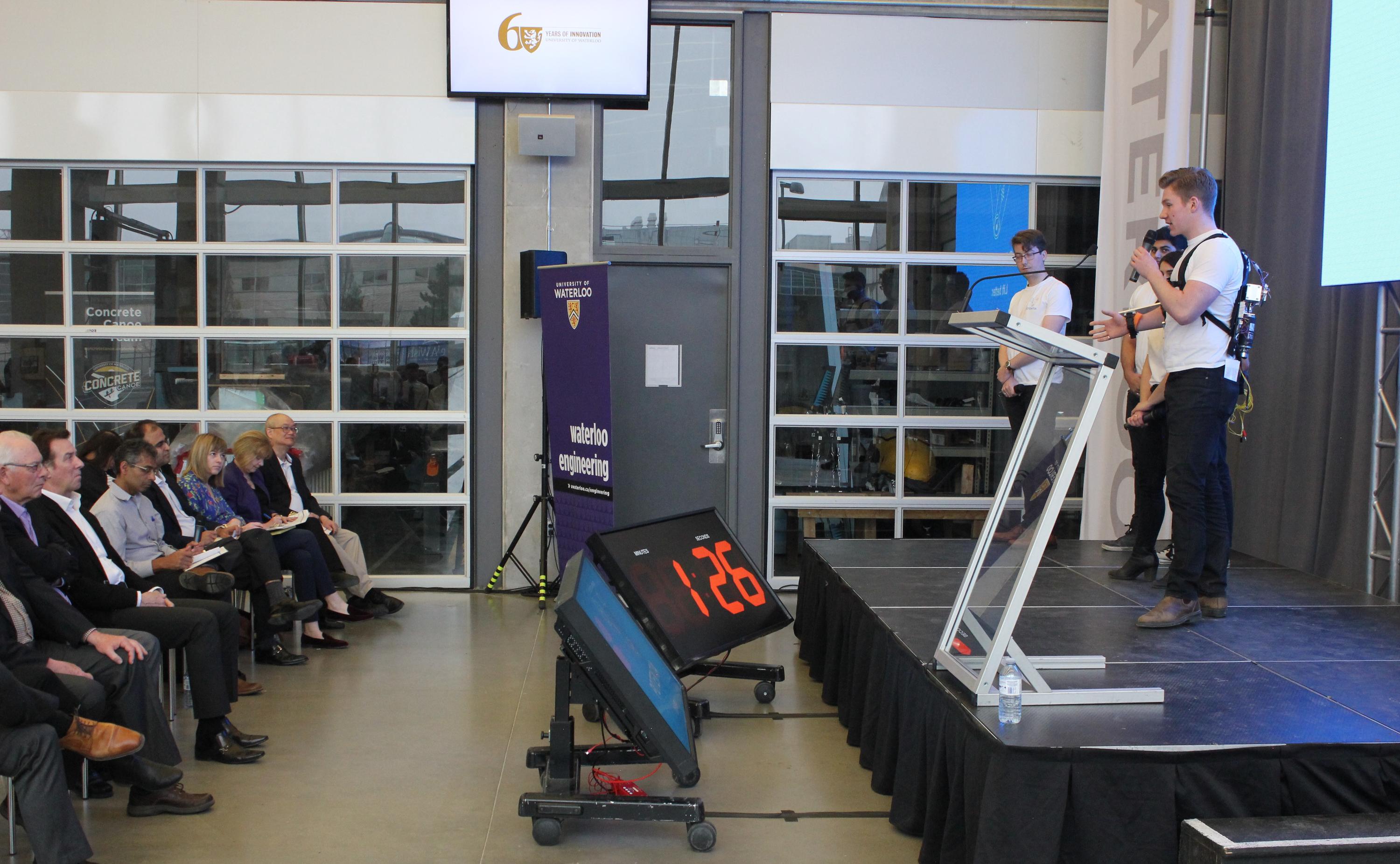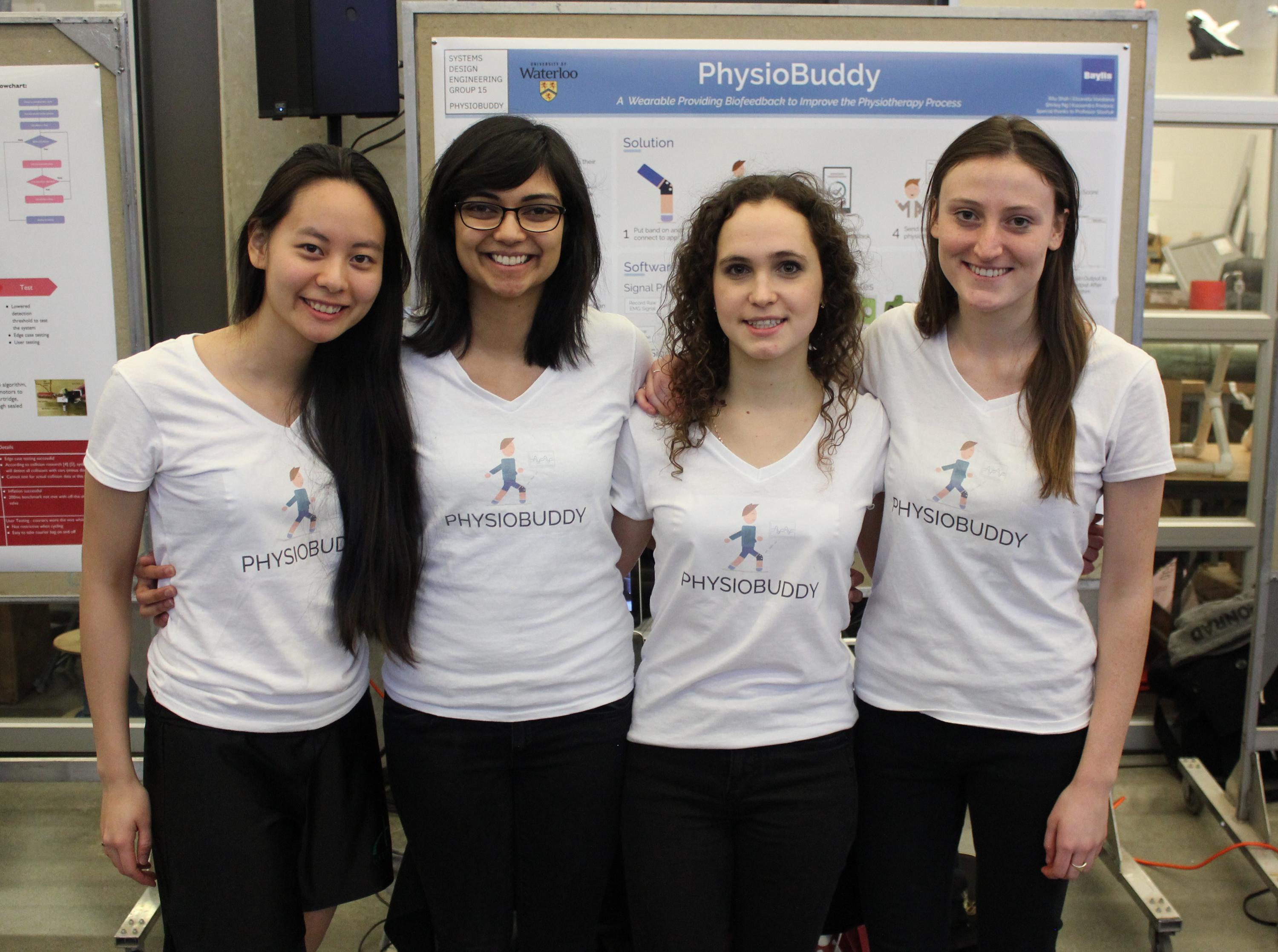A sense of purpose trumped flat-out fun when four mechatronics engineering students finally settled on a project to cap their undergraduate years at the University of Waterloo.
Now they have confirmation it was the right way to go.
John Curticapean, Ben Hudson, Tony Qu and Malcolm Williams took one of six $10,000 prizes this week as student startups pitched their business ideas at the Esch Entrepreneurship Capstone Design Awards competition.

John Curticapean (left to right), Malcolm Williams and Ben Hudson of Circadian Energy pose with Esch Foundation trustees Jim Sharples, David Esch and Larry Barrett at this week's pitch contest for graduating Waterloo Engineering students.
Instead of a racing game combining remote control cars and virtual reality technology – one of at least 50 project possibilities they kicked around – they stepped on stage as Circadian Energy to outline a low-cost hub system to enable neighbours in the developing world to share electricity.
Cheaper and more reliable than the kerosene and stand-alone home solar systems now in use in underserviced areas, that concept ticked all the boxes on their checklist of priorities.
“It had to be something we’d be proud to have our names attached to and that we could work on for a long time,” said Curticapean.
After turning down job offers from the likes of Apple and Tesla, the teammates are pursuing the project full-time, with plans to travel to Tanzania this summer to refine the technology and return for pilot testing next year.
“We really see this changing the world,” said Williams.
In all, 14 teams of graduating Waterloo Engineering students – chosen as finalists from more than 40 applicants - had 90 seconds to explain their fourth-year Capstone Design projects in front of judges and several hundred people at the Sedra Student Design Centre.

Andrew Smiles of student startup Potentia makes his pitch to judges as time ticks down at the Esch competition this week.
The other $10,000 winners at the fifth annual pitch competition were:
GreenSorbs (Jack Anderson, Skylar Bone, Olsi Goxhaj and Kien Tran – chemical engineering) for booms made from a polymer fibre in old tires, otherwise destined for the landfill, to absorb and contain oil in the event of spills.
“We’re using a waste product to pick up waste,” said Bone.
PhysioBuddy (Shirley Ng, Kassandra Predovic, Ritu Shah and Elizaveta Vorobieva – systems design engineering) for a wireless sensor band that gives physiotherapy patients feedback to help and motivate them to do their exercises correctly.
“We’re PhysioBuddy - physiotherapy done right,” said Shah.
Qalm (Paul Boyadjian, Shahriar Kabir, Bradon Lui, Thomas Uhlenbruck and Aniket Verma – chemical engineering and environmental engineering) for technology to monitor industrial steam traps and relay information on costly leaks to operators.
“Together we will make invisible failures visible,” said Kabir.
SannTek (Noah Debrincat, Thomas Dunlop, Karolyn Mackowiak, Ben Milligan and Chris Taylor – nanotechnology engineering) for a nanotechnology-based sensor to determine levels of marijuana intoxication from breath samples.
“What police need is a breathalyzer for marijuana - and that’s where we come in,” said Mackowiak.

Shirley Ng (left to right), Ritu Shah, Elizaveta Vorobieva and Kassandra Predovic of PhysioBuddy took one of six $10,000 prizes as graduating Waterloo Engineering students pitched their startups.
weLite (Diogo de Oliveira Livera, Piaopiao Long, Aswathy Ann Thomas and Gareth Toogood-Holmes – chemical engineering) for a portable, easy-to-use device to clean drinking water in developing countries using a photocatalyst material and sunlight.
“We want to solve the problem of economic water scarcity experienced by millions of people around the world,” said Thomas.
An additional $3,000 for the Sedra People’s Choice Award, as voted on by audience members, went to Hiza (Sanhar Balachandran, Sadruddin Hashmani, Bainian Liu and Nabeel Shahid – systems design engineering) for a system to detect risk factors for non-contact ACL injuries among collegiate athletes.
Event emcee Matt Stevens, a Waterloo Engineering alumnus and CEO of FleetCarma, shared a story about just how far an $8,000 loan from a mentor went towards paying rent and buying groceries when he co-founded his business on a shoestring a decade ago.
“For those of you who decide to take a run at your ideas, you’ll realize that there is student poor and then there is entrepreneur poor,” he told the competitors. “I know how much you will appreciate the money today if you’re fortunate enough to win it, but I know how much more you’ll appreciate it in a year.”
The awards are funded by The Esch Foundation to support creative and entrepreneurial students in the pursuit of research and development and its commercialization for the benefit of Canada.